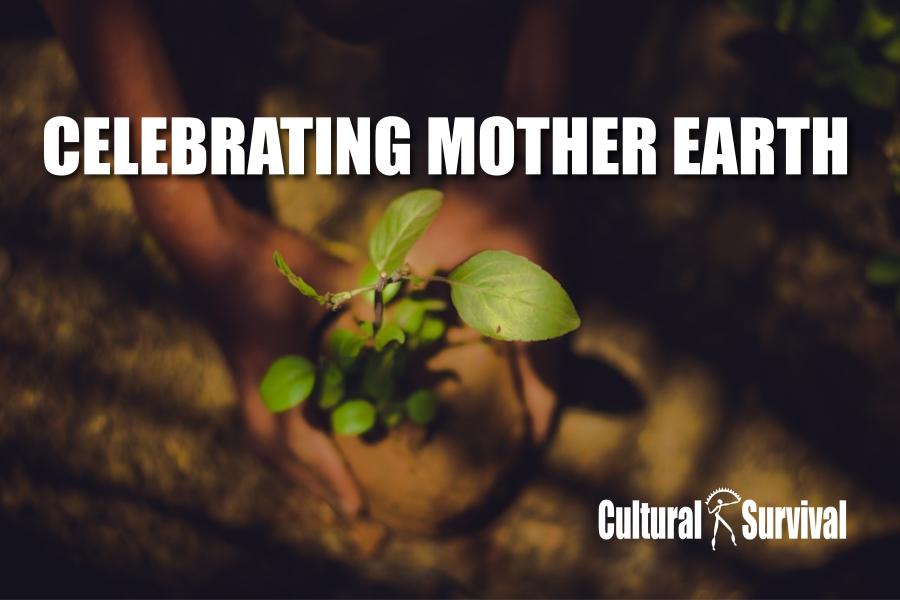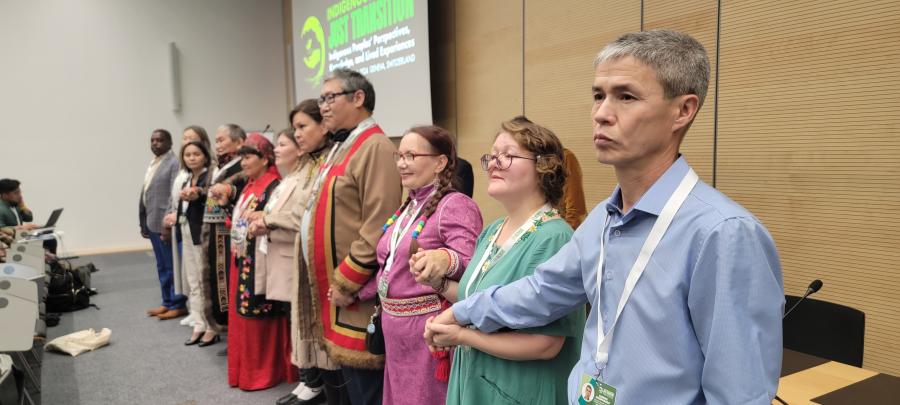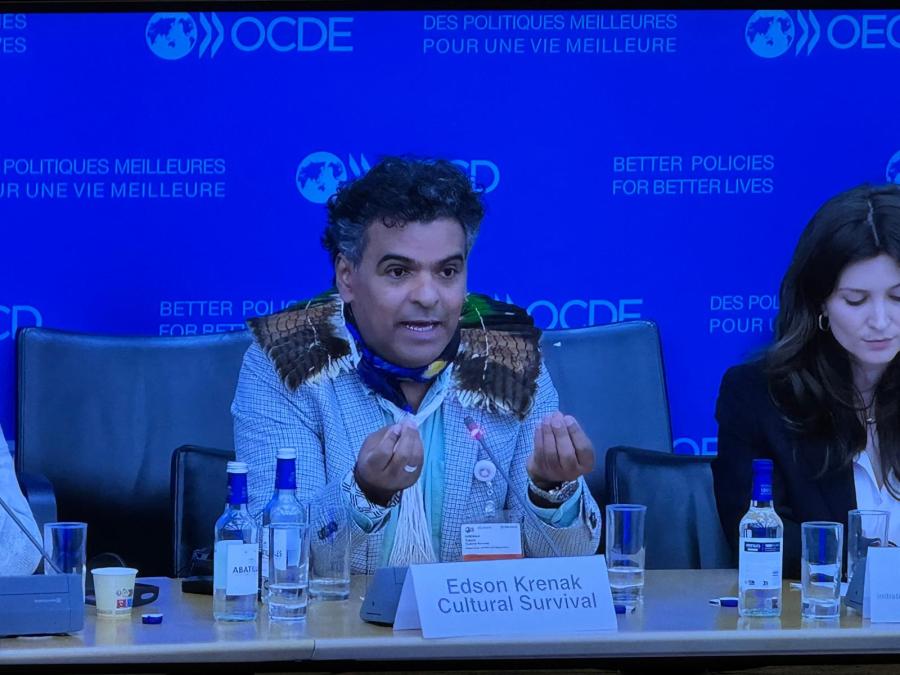
By CS Staff
The 16th meeting of the Conference of the Parties of the Convention on Biological Diversity (CBD COP16) will commence in Cali, Colombia on October 21, 2024. This will be the first conference since the adoption of the Kunming-Montreal Global Biodiversity Framework (KMGBF) in 2022. The meeting will bring together government representatives from the 196 countries that are Parties to the Convention, representatives of UN bodies, industry representatives, and observer groups, especially Indigenous Peoples, women, youth, and other rights holders.
Governments will present progress made on their National Biodiversity Strategies and Action Plans in line with the 4 Goals and 23 Biodiversity Targets of the Kunming-Montreal Global Biodiversity Framework.
The Agenda of the CBD COP16 includes many unfinished issues, including:
- Continued negotiations for a framework for monitoring, reporting, and reviewing the implementation of the framework’s targets to track progress based on evidence and universal data. This includes the adoption of indicators for each of the 23 goals and will allow governments to report on progress.
- Resource mobilization, capacity building, and technical and scientific cooperation for the implementation of the Kunming-Montreal Global Biodiversity Framework, with special consideration given to ensuring access to finance for the least developed countries, small island states, and countries with economies in transition.
- Operationalization of the Global Multilateral Benefit Sharing Mechanism for the use of digital sequence information of genetic resources, including a Global Fund. The Global Fund will support the sharing of billions of dollars in benefits derived from the use of DNA sequencing from animals, plants, and microbes, known as digital sequencing information.
The Kunming-Montreal Global Biodiversity Framework contains 20 references to Indigenous Peoples, 8 references to Traditional Knowledge, 2 references to Free, Prior and Informed Consent, and 1 reference to the UN Declaration on the Rights of Indigenous Peoples throughout its text. Though the text contains language that, if implemented, should make significant strides toward its goals, many Indigenous leaders fear that it will follow the same path of similar environmental agreements—one of neglect.
So much is at stake for Indigenous Peoples at the upcoming CBD COP16, including participation in national implementation and direct access to funds.
As Norberto Farekatde (Uitoto), an Indigenous representative from Colombia, told us, "We expect from the COP16 meeting a serious commitment from the Parties toward the fulfillment of environmental policies for the benefit of the planet and humanity." He went on to say, "We would like to be directly involved in these environmental policy decision-making spaces, as it is inconceivable that other actors who are disconnected from our reality, our territory, our ancestral knowledge, and our Indigenous practices, continue to make decisions based on other interests, disregarding our own ways of understanding and shaping life and the world." Farekatde will join Cultural Survival’s delegation to CBD COP16 in Cali.
Traditional Knowledge Summit in Colombia
In anticipation of CBD COP16, governments, UN Bodies, and Indigenous Peoples' organizations are conducting activities and events to prepare and develop positions on various issues that will be discussed at the Conference of the Parties.
The International Indigenous Forum on Biodiversity (IIFB), together with the Ministry of Environment of Colombia, the Permanent Coordinating Council (MPC), and the CBD Secretariat organized the World Summit on Traditional Knowledge related to Biodiversity, held August 26-29 in Bogota, Colombia. The meeting aimed to raise the profile of Indigenous Peoples’ Traditional Knowledge and their contribution to biodiversity conservation and climate change mitigation and adaptation, as well as the role they plan in achieving the Goals of Kunming-Montreal Global Biodiversity Framework and the Paris Agreement.
The meeting was attended by more than 150 participants, including representatives of Indigenous Peoples from the world’s seven socio-cultural regions, government representatives, UN bodies, international organizations, and academia.
Colombia’s Minister of Environment and Development, Susana Muhamad, declared that this meeting would allow Indigenous Peoples to articulate their positions on many issues. Ahead of the meeting, she said, “At COP16, a decision will be taken to approve a work plan for the next 10 years to define the parameters if we reach an agreement on how the government would support the work of Indigenous Peoples, their territoriality, and their rights, precisely so that they begin to include the participants' concern for biodiversity.”
The Summit's Agenda included the main topics of discussion at CBD COP16, including one of the most important issues for Indigenous Peoples: a new Programme of Work and Institutional Arrangements for Article 8(j) and other provisions of the Convention relating to Indigenous Peoples and local communities.
The main results of the Summit, including recommendations developed by the participants as well as proposals from Indigenous Peoples, will be presented on the IIFB website and at the upcoming CBD COP16 in Cali, the UN Framework Convention on Climate Change COP29 in Baku, Azerbaijan, and 11th session Intergovernmental Science-Policy Platform on Biodiversity and Ecosystem Services in Windhoek, Namibia.
Article 8(j) and Institutional Arrangement for Indigenous Peoples Under the Convention on Biological Diversity
Traditional Knowledge of Indigenous Peoples is at the core of their identities, languages, cultures, spirituality, and livelihoods, and is an important element of their intellectual and cultural heritage.
The Convention on Biological Diversity has recognized the close relationship and dependence of indigenous peoples on biological resources, in particular in the preamble to the Convention and Article 8(J), which states: “Each contracting Party shall, as far as possible and as appropriate, subject to national legislation, respect, preserve, and maintain knowledge, innovations, and practices of Indigenous and local communities embodying traditional lifestyles relevant for the conservation and sustainable use of biological diversity and promote their wider application with the approval and involvement of the holders of such knowledge, innovations, and practices and encourage the equitable sharing of the benefits arising from the utilization of such knowledge innovations and practices.”
In order to implement Article 8(j) and related provisions, in 2000, the Convention on Biological Diversity adopted a Programme of Work on Traditional Knowledge and established a Working Group of a general composition specifically to consider issues related to the implementation of Article 8(j) and the links with its provisions. This Programme of Work and Working Group was established with a mandate of 20 years (2000-2020).
The Working Group was unique as the first Working Group under any UN Convention to specifically address issues of Traditional Knowledge of Indigenous Peoples. Its mandate was to promote the fair and widespread application of Article 8(j) with the full and effective participation of Traditional Knowledge rights holders. Indigenous Peoples played a full and active role in its work, appointing their own Co-Chair and speaking on any issue on the agenda items, thereby promoting full and effective participation of Indigenous Peoples at all stages and levels of CBD implementation.
As part of the Programme of Work to implement the obligations set out in Article 8(j) and other provisions of the Convention on Biological Diversity relating to Traditional Knowledge, a Plan of Action for the retention of Traditional Knowledge, innovations, and practices was created; a Voluntary Fund for Indigenous Peoples was established under the Convention to finance the participation of Indigenous Peoples in its working meetings; and a number of Voluntary Guidelines were developed, including on the Repatriation of Traditional Knowledge and Free, Prior and Informed Consent in the issue of access to Indigenous Traditional Knowledge.
Since the Working Group’s mandate ended in 2020, Indigenous Peoples, represented through the International Indigenous Forum on Biodiversity and together with the Parties to the Convention that support them, took the initiative to create a Subsidiary Body on Article 8(j). There is precedent for the transition from a Working Group to a Permanent Subsidiary Body; in 2014, the CBD Conference of the Parties decided to establish a Subsidiary Body on Implementation to replace the Working Group on Review of Implementation.
At the recent Bogota Summit, Muhamad emphasized that "Indigenous Peoples have two aspirations: to have a permanent Subsidiary Body in the Convention, which means being a permanently recognized body, which will give them more political leverage, and [to] have direct access to the international resources that are allocated to this work plan.”
If a Subsidiary Body on Article 8(j) is established, it will be the best mechanism for the implementation of the CBD provisions related to Indigenous Peoples, the implementation of the Goals and Targets of the Kunming-Montreal Global Biodiversity Framework, and subsequent programs and recommendations up to 2050. The Subsidiary Body will have a mandate to work on matters related to Article 8(j) and related provisions. It will report directly to the CBD Conference of the Parties, providing strategic advice to the Subsidiary Bodies on Scientific, Technical and Technological Advice and on Implementation, and also advise the Conference of the Parties on the implementation of the Kunming-Montreal Global Biodiversity Framework.
Whether a Subsidiary Body is created or the mandate of the Working Group on Article 8(j) is extended will be determined by the results of negotiations and lobbying at CBD COP16. Cultural Survival will take an active part in this work.
COP16 and Business
In 2019, the Intergovernmental Science-Policy Platform on Biodiversity and Ecosystem Services (IPBES) identified five direct drivers of biodiversity loss: changes in land and sea use, direct exploitation of organisms, climate change, pollution, and invasive species. Additionally, it identified two indirect drivers: people’s disconnect with nature and the lack of value and importance placed on nature.
Some of the key actors directly responsible for biodiversity loss include agribusiness, forestry and logging companies, the fishing industry, mining and extractive industries, urban development, and climate change contributors.
Target 15 of the Kunming-Montreal Global Biodiversity Framework asks parties to take the necessary legal, administrative, and policy measures to “enable and encourage” business, transnational corporations, and financial institutions to regularly monitor, assess, and transparently disclose their risks, dependencies, and impacts on biodiversity.
Businesses have a huge responsibility to implement the Kunming Montreal-Global Biodiversity Framework with a human rights-based approach that is in line with international human rights standards. Respecting Indigenous Peoples’ right to self-determination and Free, Prior and Informed Consent (FPIC) is a core principle of the framework, its goals, and targets. Businesses should seek the Free, Prior and Informed Consent of impacted Indigenous communities before any project commences. “In environmental policy, the Free, Prior and Informed Consent [should] be effectively implemented for actions or decisions in Indigenous ancestral territories," Farekatde affirmed.
Cultural Survival will continue to report from the ground at COP16 about the most important issues impacting the lives and rights of Indigenous Peoples.



